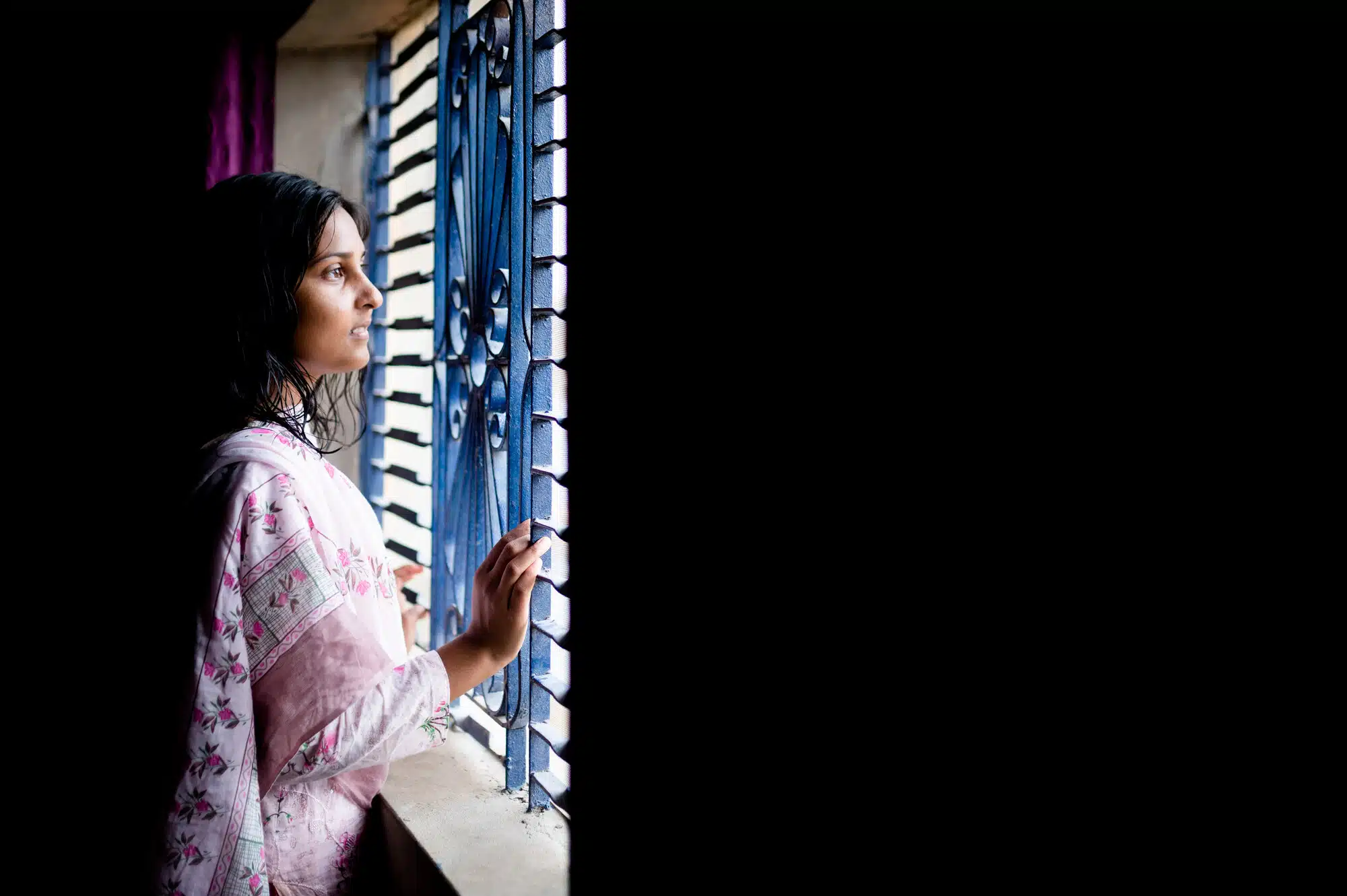Media Centre - Media release - 4 October 2023
Girl and young women activists in Australia and across the world fear for safety, making gains at huge personal cost – new report

One in five (17%) adolescent girl and young women activists worldwide have feared for their safety while carrying out their campaigning and advocacy work, according to new research by girls’ rights NGO Plan International.
Here in Australia, more than a third (35%) of young women and girl activists said that campaigning for their basic rights had taken its toll on their mental and emotional wellbeing – higher than the global figure of one in four (25%).
And whether campaigning on climate action, First Nations justice, gender equality, disability rights, equal pay and opportunity for women in sport, sexual and reproductive health rights or an end to gender-based violence, more than a quarter (27%) of the Australian girls and young women surveyed said a significant barrier to participating in advocacy or activism campaigning was again, a fear for their physical safety – higher than the global average of 21%.
The global study – which involved over a thousand young female activists from 26 countries, aged between 15 and 24 and is one of the biggest to date – lays bare how girls face a multitude of challenges as they campaign for change, facing risks ranging from hostility from community members to oppressive policing and online abuse.
One in 10 (9%) have faced threats of physical violence as a result of their work, while 15% have experienced online harassment and abuse.
The single biggest barrier to girls’ activism is a shortage of funding, named by more than half (54%) of girls surveyed as the main factor holding their campaigning back.
Sarah Williams, a proud First Nations woman and survivor advocate against sexual assault founded the online campaign “What Were You Wearing”, which went viral on Tik Tok this year. She spoke about the significant toll her activism has taken on her mental health: “It can be so taxing and draining… and there can be a point where it becomes too much. Yet I ultimately feel that it is my duty to help survivors of sexual abuse and people in need, so I will continue if my mental health can stay on a good path.”
Despite the hurdles put in their way, the report – ‘Turning the World Around: Girl and young women activists leading the fight for equality’ – found that nearly all girl activists (95%) say campaigning has had a positive impact on their lives, making them feel proud, empowered, and capable, and the majority were determined to continue with their activism and saw it as a life’s work.
The research highlights the diverse experiences of young female campaigners and is launched ahead of International Day of the Girl on 11 October. It also found that:
- Girls’ activism is creating change, with more than half (61%) of those surveyed by Plan International saying the impact of their activism has met or exceeded their expectations.
- Gender equality is the single most important issue for girl activists, with 60% naming gender equality or gender-based violence as a priority issue.
- One in four (27%) girls cited negative views from members of their family or community as another barrier to their campaigning work.
In the words of Muzoon, 25, a Syrian refugee and education activist who contributed to the report: “It is not an easy nor a straightforward mission. To be an activist requires a tremendous amount of patience, strong will and determination in order to achieve your goals.”
Blessing, 17, is a campaigner from Sierra Leone who helped pass a law to increase female representation in Parliament last year. “I have seen how boys have a lesser regard for females, so I’ve taken that up as my responsibility to empower other girls,” she said.
In Australia, disability activist, author and editor-in-chief of Missing Perspectives Hannah Diviney said one of the driving forces of her activism was the hope that 10 years from now, the world will be in a better place, “given the eight-year-olds we have in our lives will be able to vote by then.”
“Hopefully I’ll be having different conversations to the ones I’m having now because we’ll have made some progress…when the notion of not having disabled stories and characters on screen will be a far forgotten thing of the past. I think obviously in 10 years we’re not going to see gigantic movement on girls’ rights, because we’ve got a long way to go and we just keep getting set further back and further back and further back, but I think hopefully it won’t feel like banging our heads against brick walls.”
“From taking action on the climate crisis to stopping child marriage, girl activists are changing their communities – and the world around them – for the better. Injustice is driving girls to act,” added Plan International Australia CEO Susanne Legena.
“Right here in Australia, we are seeing trailblazing girl and young women advocates making significant change and progress: from the many inspiring First Nations young women campaigning right now for a Voice to Parliament, so that agreement-making and truth-telling can finally be done in this country on equal terms; through to Matildas players such as Mary Fowler, who have put important discussions around gender pay gaps and investment in women’s sport on the national agenda. We have young women such as Chanel Contos and Yasmin Poole fighting back against sexism, misogyny and consent, and the formidable Anjali Sharma, who has put forward a proposal to alter Australia’s Climate Change Act and establish a duty of care in Australian law to protect young people from climate harm.
“Young women and girls in Australia are calling for change and are empowered to do something about it. They know that we simply cannot wait another 131 years – the current World Economic Forum projection – to reach gender equality. They are taking it into their own hands and demanding we all act, sooner, to beat the clock.”
Youth advocate and Plan International ambassador Yasmin Poole, who contributed to the study as a co-researcher, said that the report had validated her own experiences of how tough and unrelenting campaigning for change really is as a young and diverse woman.
“In a world where gender discrimination remains widespread, young female activists are all too often ignored, or worse, harassed, or ostracised. Their incredible achievements often come at real personal cost. Access to funding and policy making spaces is also often in short supply, adding to the struggle to get their voices heard,” she said.
“Girls and young women have the right to be heard and to shape the decisions that impact their lives, and this shouldn’t come at a cost to their personal safety. Without their work, we remain a long way from achieving gender equality,” added another co-researcher of the report, Libby Payne.
“That’s why it’s critical that we all play our part in supporting the work of girls and young women involved in activism. In order to ensure that future generations of young people in all their diversities have access to decision making spaces we need to work to create a culture where their safety and wellbeing is protected.
Ahead of International Day of the Girl, Plan International is standing with girls and young women as they call for governments, donors, and civil society to play their part in supporting girl activists to help beat the clock on gender inequality.
Key recommendations include increased funding and support by Governments for girl and youth-led activist initiatives and groups; quality education on gender equality, human rights and democratic governance to build girls’ understanding of, and confidence and skills in activism. Plan International also calls for all power holders to play their part in tackling age and gender discrimination, and the threat of violence, and to create safe, open spaces, to remove the barriers to girls speaking out.
Media contacts


